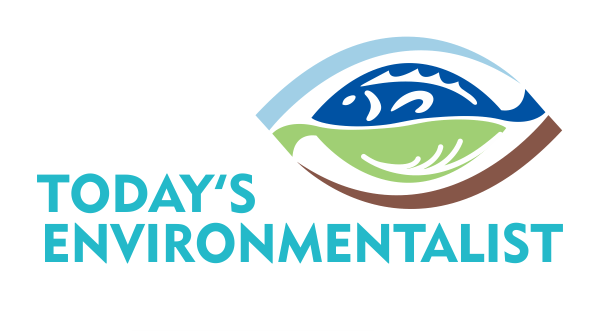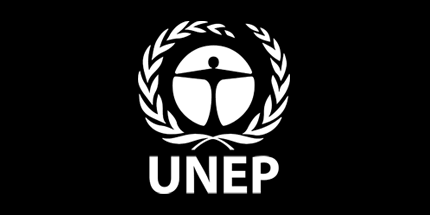• UN Environment calls for concerted global action on pollution based on its most comprehensive assessment to date of the links between pollution, health and ecosystems
• Every part of the planet and every person is affected by pollution, the world’s largest killer
• Solutions are within our grasp, but require new policies, enhanced public and private sector leadership at all levels, redirected investments and massive funding
Everyone on earth is affected by pollution, according to a new report from UN Environment, The Executive Director’s Report: Towards a Pollution-Free Planet, which draws on the latest data from every continent to examine what we know about pollution and lay out key elements of a comprehensive framework of actions for how to beat it.
The Report’s wide reaching policy suggestions are based on analysis of pollution in all its forms, including air, land, freshwater, marine, chemical and waste pollution.
Overall, environmental degradation accounts for nearly one in four of all deaths worldwide, or 12.6 million people a year, as well as a barrage of human health problems and widespread destruction of key ecosystems.
“What makes this report different is the breadth of its analysis and the new ambition of its solutions,” said head of UN Environment, Erik Solheim. “It provides a clearer picture than ever before of the scale of the pollution menace – and the scale of action that will be needed. None of us is now safe, so now all of us have to act.”
Everyone is affected by pollution. Some are directly exposed by handling chemicals at work or by living in the 80% of cities whose air doesn’t meet UN health standards. Others are among the 3.5 billion people who rely on our polluted seas for food, or make up the 2 billion who still do not have access to clean toilets.
The health effects are stark. Air pollution alone kills 6.5 million people, the world’s 50 biggest dump sites threaten the lives of another 64 million, and 600,000 children annually suffer brain damage due to the toxic effects of lead in paint. Even exposure to low levels of chemical pollution can create a cocktail with complicated effects on the body that build up year by year.
The Report notes that the most vulnerable people are also the most affected, including children whose mental and physical development can be stunted by exposure to pollution during their first 1,000 days, and the poor, who rely on functioning ecosystems or work in the world’s dirtiest jobs to make a living.
The effect on the environment is equally dire. Our seas already contain 500 “dead zones” with too little oxygen to support marine life. Over 80 percent of the world’s wastewater is released into the environment without treatment, poisoning the fields where we grow our food and the lakes and rivers that provide drinking water to 300 million people. Stockpiles of obsolete chemicals threaten to further pollute the environment and endanger people’s lives.
Although some forms of pollution have receded, thanks to improved regulation, technology, public awareness and action spurred by international agreements, unsustainable consumption and production practices threaten to undo all our gains.
In the face of these challenges, the Report builds on an analysis of where we have previously fallen short to lay out 50 policy options to address different pollution risk areas. The 5 key messages are:
• political leadership and partnerships at all levels, mobilizing the industry and finance sectors;
• action on the worst pollutants and better enforcement of environmental laws;
• a fresh approach to managing our lives and economies through resource efficiency, lifestyle changes, and better waste prevention and management;
• massive new and redirected investments in low-carbon and clean tech, ecosystems based solutions as well as research, monitoring and infrastructure to control pollution; and
• advocacy to inform and inspire people around the world.
“Sustainable development is now the only form of development that makes any sense,” said Mr Solheim. “The energy revolution, increased mobilization around climate change, and the push from governments, businesses and cities toward greener and more sustainable development are all game changers. But those who don’t get on the right team will be left behind in the polluted world of the past – and so will their citizens.”
The Report also notes that without factoring in pollution the world is unlikely to meet the Sustainable Development Goals – a set of 17 targets agreed by all 193 member states in 2015 that guide global development efforts. In this context, environmental governance is a key enabler. It needs to be multi stakeholder and multi-level, involving both formal agreements and voluntary initiatives and commitments for success to be met.
“Sustainable consumption and production is crucial to prevent and reduce pollution” said Ligia Noronha, one of UN Environment’s coordinators for the Report. We can produce more food while preserving the health of our soils and our waters for the well-being of all current and future generations.”
“The only answer to the question of how we can all survive on this one planet with our health and dignity intact is to radically change the way we produce, consume and live our lives.”
In order to work toward this change, and a pollution-free planet, UN Environment will convene the third UN Environment Assembly from 4-6 December in Nairobi, Kenya. As the world’s highest-level decision-making body on the environment, the Assembly will bring together governments, business leaders, civil society and other stakeholders to share ideas and commit to action against pollution.
The Assembly is the year’s best opportunity to track the latest developments in environmental policy and action, report on new stories and interview people in power, in the know, living on the front lines of climate change and experiencing the devastating effects of pollution.
For more information and to arrange interviews, please contact:
Rob Few, Head of News and Media, UN Environment, +254 715 618 081, robert.few@unep.org Shari Nijman, News and Media Officer, UN Environment, +254 720 673 046, shari.nijman@]unep.org
About UN Environment
UN Environment is the leading global voice on the environment. It provides leadership and encourages partnership in caring for the environment by inspiring, informing, and enabling nations and peoples to improve their quality of life without compromising that of future generations. UN Environment works with governments, the private sector, civil society and with other UN entities and international organizations across the world.








